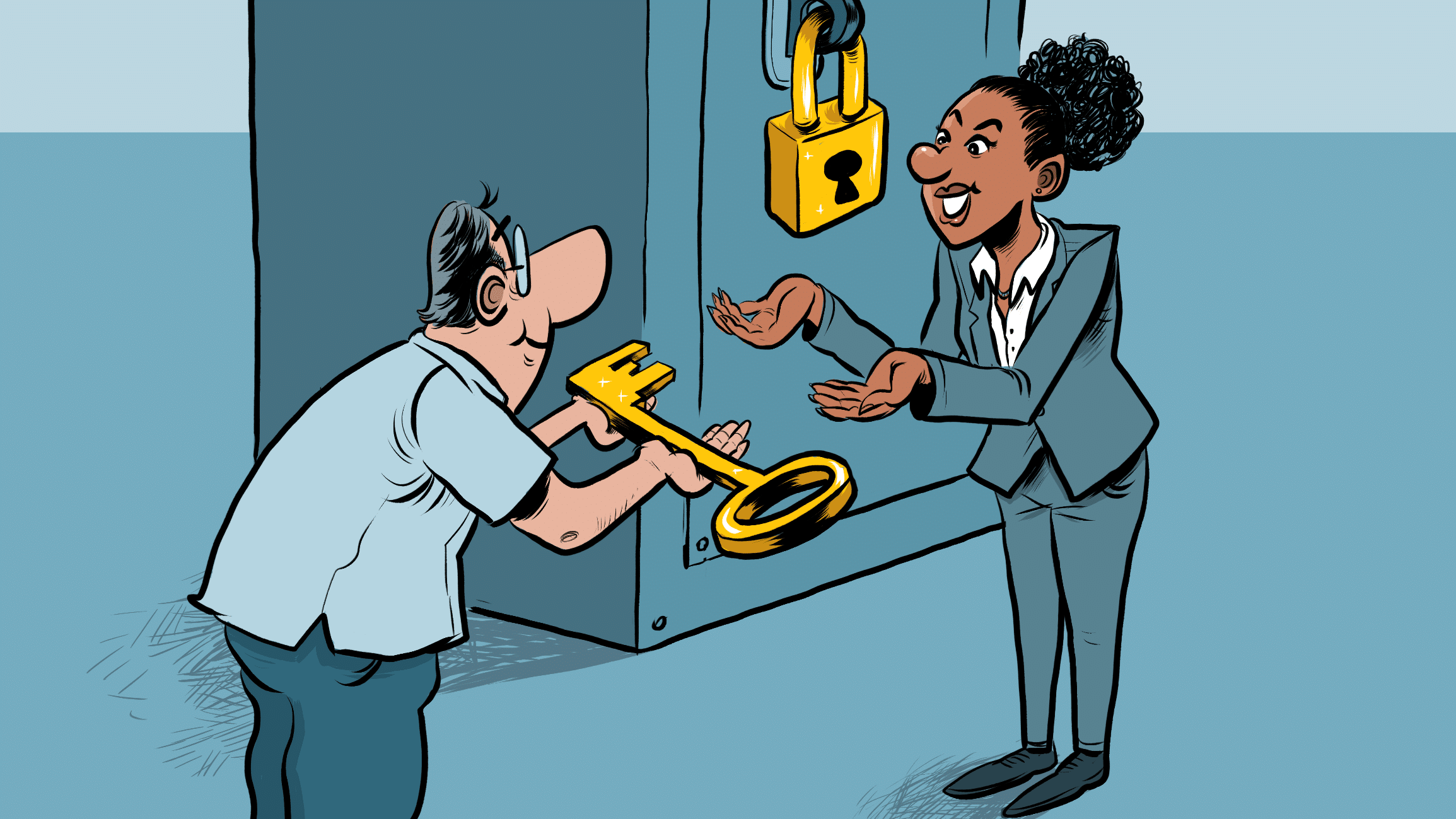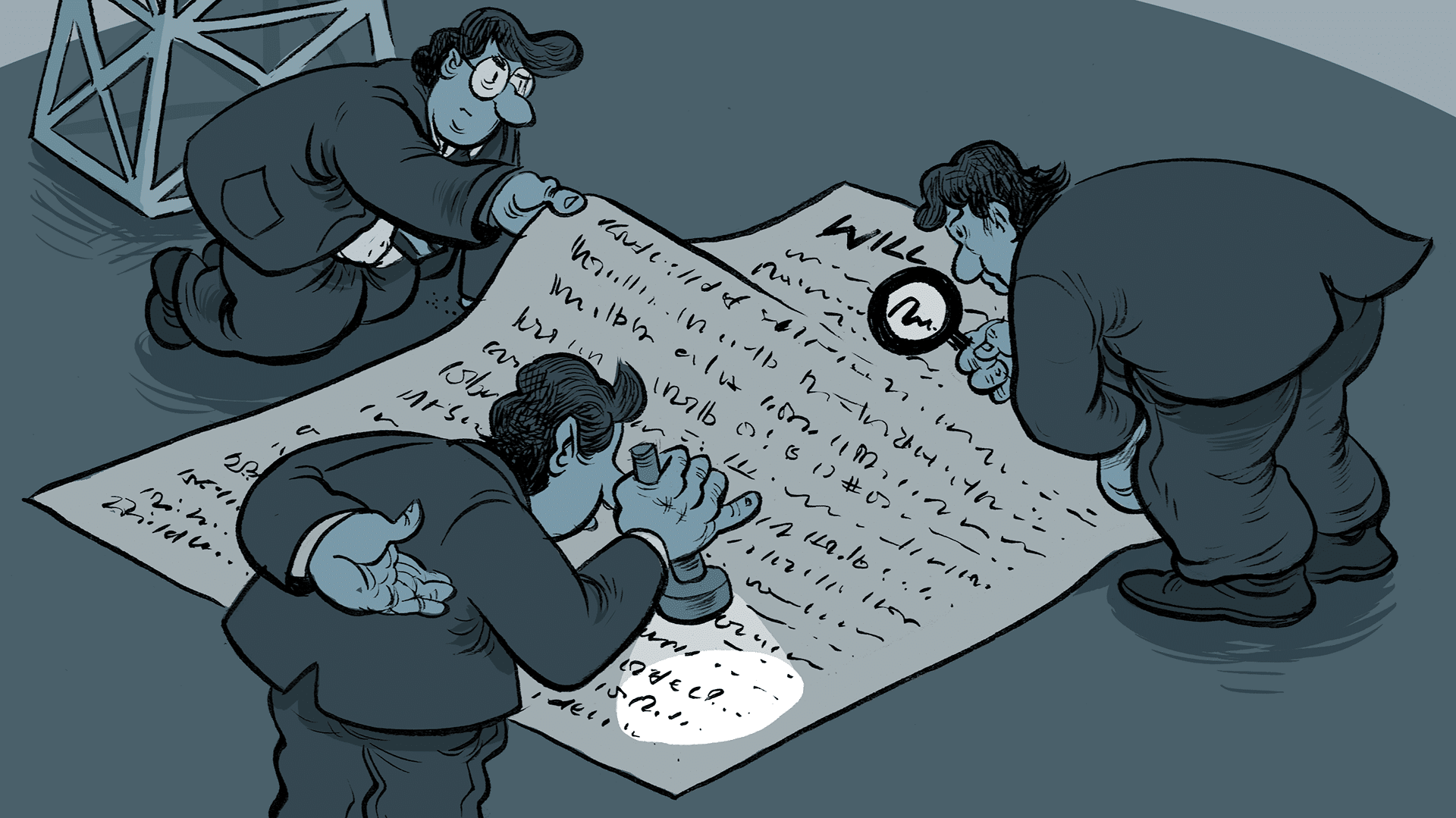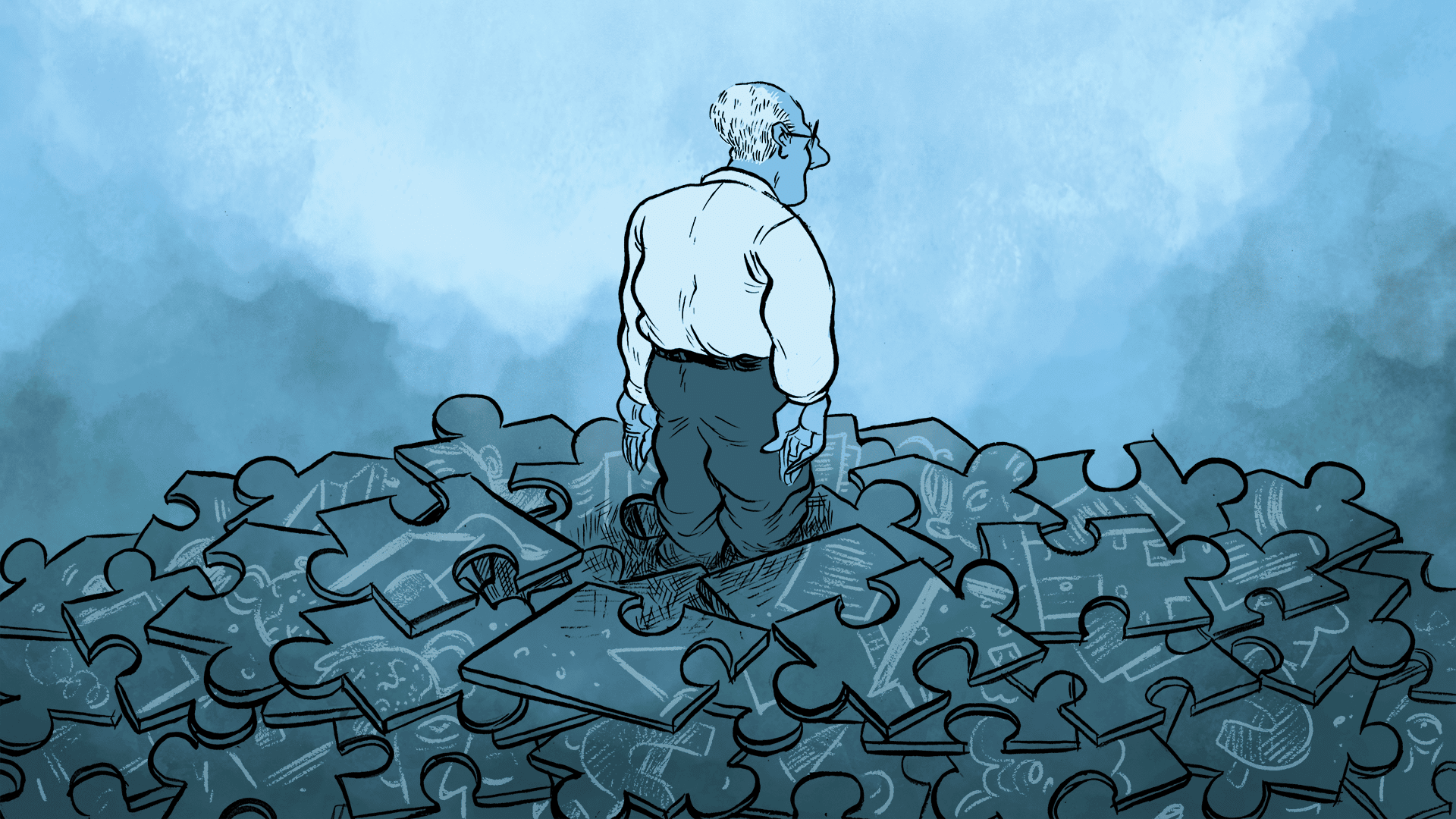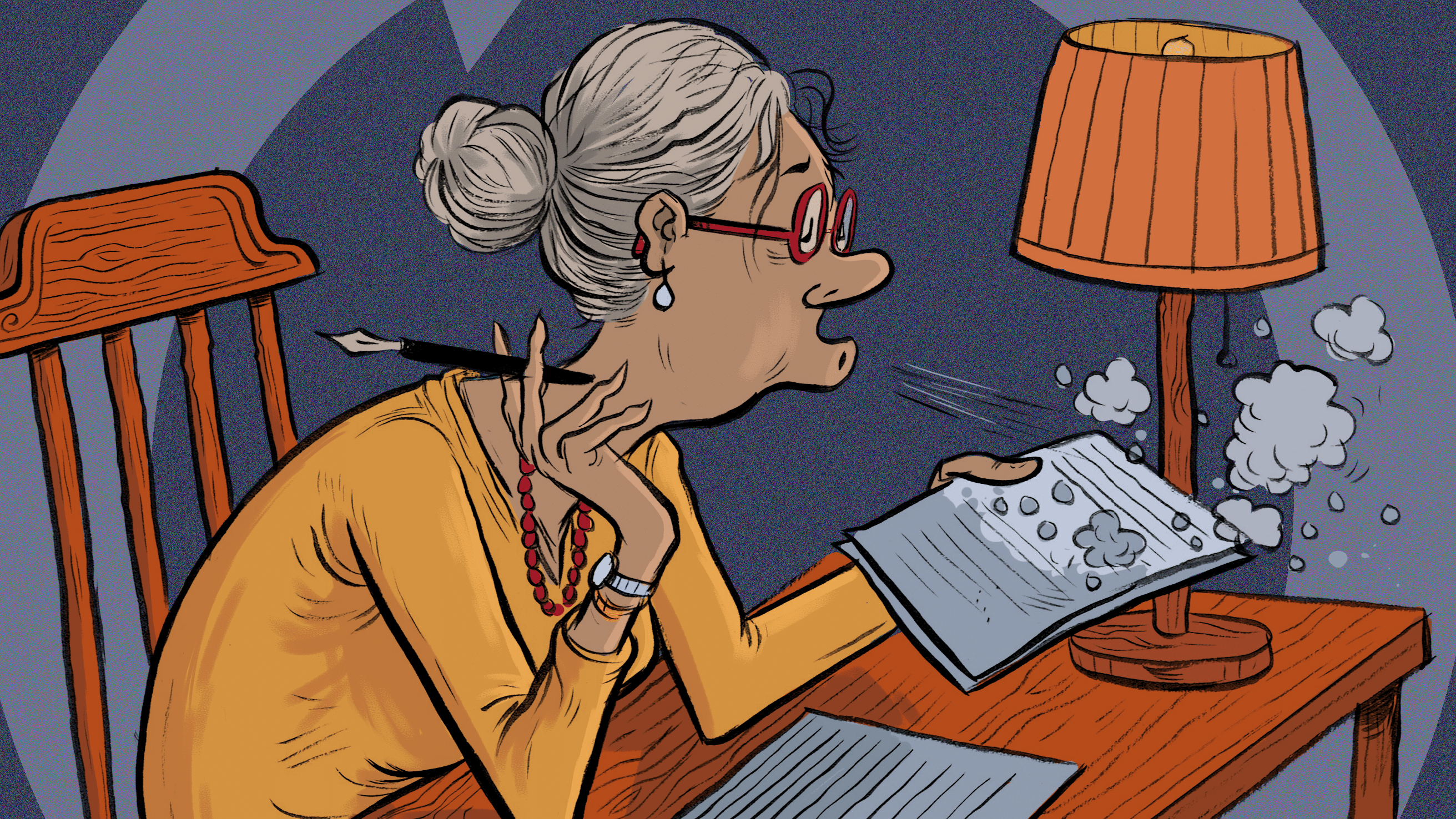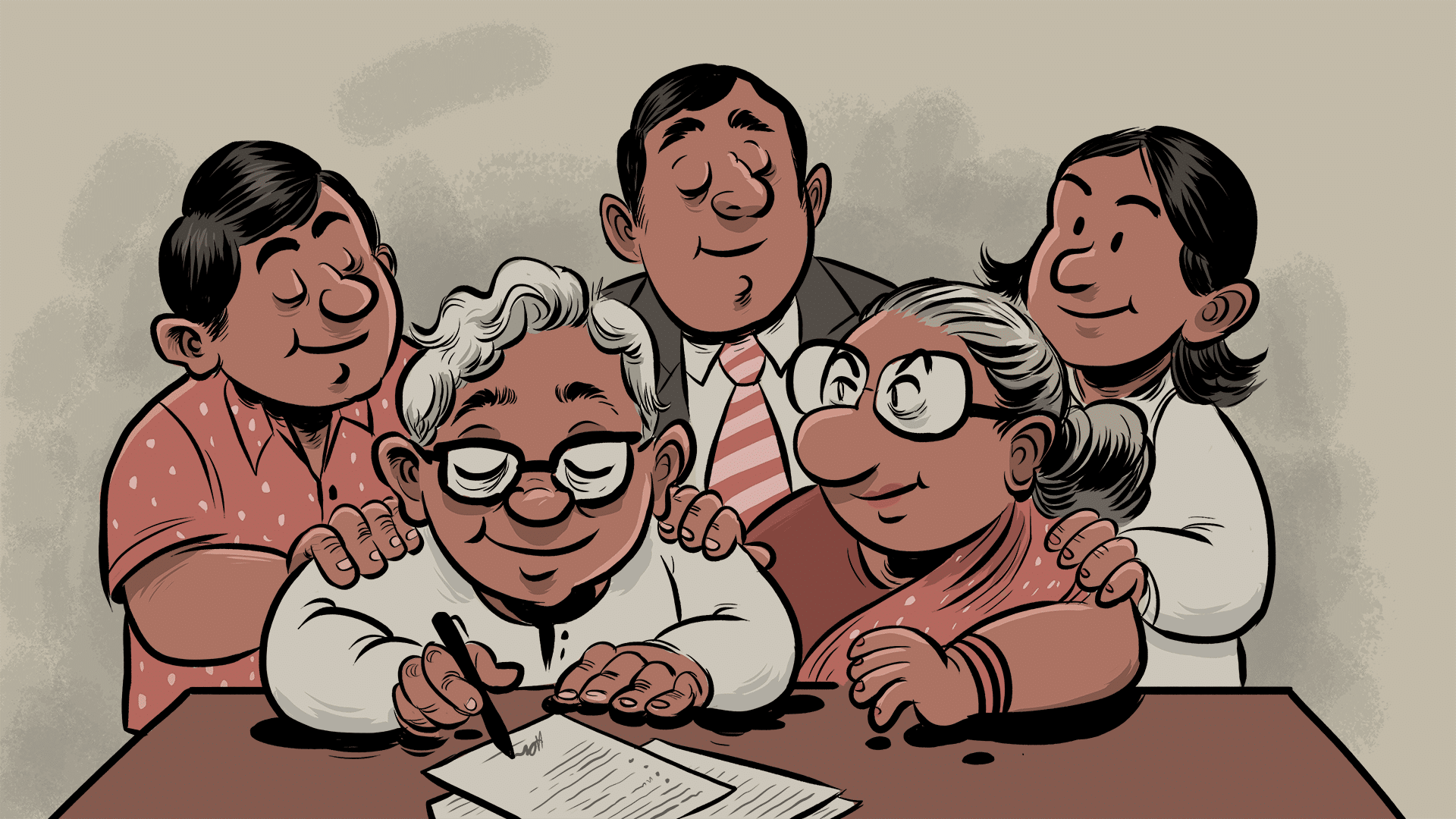
Powers of Attorney: A beginner’s guide
You hope you won’t ever need to use one, but should the time come where you need Powers of Attorney, you may be glad to have it in hand. Here’s what you need to know about POAs and how they provide support for your loved ones when they need it most.
How would you feel if you forgot your banking password? Or even how to get to your account with a computer? Unfortunately, many Canadians will suffer cognitive impairment in their senior years.1 While forgetting someone’s name may be awkward, forgetting to pay bills or take your medicine can be red flags that you may soon need someone to help monitor your affairs.
Do you have a plan for what you would do if this happens?
Powers of Attorney (POA) may be legal documents you’ve been putting off as low priority but Domenic Tagliola hopes you’ll get yours done. Tagliola, a Tax and Estate Planner with TD Wealth, wants you to think of them as tools to help keep control of your life — to hold on to the ability to care for yourself and your family whether you’re in a time of crisis or dealing with the inevitable problems of aging.
“Everyone wants to be able to make big decisions about where to live and how we spend our money as well as the mundane things, like what to eat,” Tagliola says. “The tragedy is that many of us could lose control of these aspects of our lives if we are victims of cognitive impairment as we age.”
Moreover, if we are the victims of an accident and are incapacitated for a short or indefinite period, our grip on life events could also be lost, he says.
A POA can go a long way to fix this, says Tagliola, because it wields support for you and your loved ones: At a time of enormous emotional strain for your family, any stress or hesitancy around making decisions has been removed from their shoulders. Your money and assets can’t be touched unless it’s the way you’ve stipulated. And no one can step up and say they know what’s best for you or your family because you’ve already made that decision in your POA.
Tagliola says this is why the POA is essential to everyone, at any age. Here are some key points everyone should know about Powers of Attorney.
What are Powers of Attorney?
POAs are legal documents concerning your health and finances that hand over decision-making power to your appointed Attorney — a family member, friend, lawyer or institution. POAs are generally, but not exclusively, used when an individual becomes incapacitated and needs someone to mange their dealings. While the documents should be drawn up by a lawyer, the Attorney can be a family member or group of family members, a friend or even a trust company. What’s important is that an Attorney be someone you believe will act in your best interests whatever the circumstances and will be capable of managing your concerns. Within the documents, instructions on how you would like your Attorney to proceed can be specific, such as the circumstances under which they can sell your home, or left to the Attorney’s discretion.
In most provinces, the POA is divided between two separate but related entities, the POA for Property and the POA for Personal Care.
What a Power of Attorney for Property means
A POA for Property deals with your money and assets and is intended to control your financial responsibilities both for your benefit and your family’s if you are unable to manage them. For example, and depending on the instructions in a POA, an Attorney may have access to your accounts to pay day-to-day bills, file your taxes or may have the power to sell your investments to meet healthcare costs. It can also include care and maintenance on a range of assets, from ensuring your eavestroughs are clear to rebalancing your portfolio.
What a Power of Attorney for Personal Care means
The POA for Personal Care involves your wishes around healthcare and lifestyle in case you are unable to make those decisions. For example, you may have instructions for a specific diet or that you want to stay in your own home with nursing care as opposed to being relocated to an institution. It can also involve your directions for end-of-life situations or organ donation. Needless-to-say, you must choose an Attorney who is able to manage dealings with family and medical staff during times of great stress.
The importance of getting your Power of Attorney right
Tagliola stresses the need to get your POAs done properly, so that the documents match your personal situation and can therefore bring the greatest benefit when you need them the most.
This can start by providing clear but not excessive instructions for what you want to happen if the unforeseen occurs. Tagliola says that an Attorney should not be burdened with overly detailed directives because it can handicap them from taking action. Your POA for Property should be updated as your wealth grows and becomes more complex, while your POA for Personal Care should address any health concerns. As well, the two types of POAs should work in concert. For instance, any healthcare wishes made in the Personal Care POA must be able to be funded through corresponding instructions in the Property POA, and Tagliola recommends both should be completed and updated at the same time.
Tagliola also stresses that people should work with a lawyer when drawing up their POAs: While POA kits are available online, he knows from experience that completing it improperly can render the document worthless.
Also important when drawing up a POA is stating when it should become active. If you are younger, you may want the POA to “go live” only when events dictate that you need help, such as when you have a sudden, debilitating accident. If you are a senior, depending on your health, you may wish to leave it to the Attorney’s discretion when to activate their powers or even have the document become active immediately upon signing it. If you think there may be situations where you can handle your responsibilities but would like some monitoring, it’s important to give the Attorney the leeway to oversee your affairs as needs dictate. And that is why one of the most important requirements when choosing an Attorney is selecting a person or institution that is intimately knowledgeable about your personal situation.
Choosing an Attorney: The case for a trust company
Making an effective POA may start with selecting the right Attorney or group of Attorneys. Tagliola says they should ideally live close to you so that they can manage your affairs effectively. You may also want to select someone with some financial acumen, who’s reliable enough to manage your life in a time of crisis, and of an age that they are not likely to predecease you. And (this may sound obvious) you should consult with your choice to see if they actually want the responsibility.
Tagliola underlines that family dynamics may complicate matters if more than one family member is assigned as an Attorney. While most families can work effectively together, tension can appear if strong emotions and money are in play. He says it’s a reality that there may be conflicts of interest at work here — an adult child managing a parent’s money may also be aware they are handling the future inheritance for themselves and their siblings. Another common issue arises when an institutionalized spouse needs to sell a home or property to cover healthcare costs while their healthy partner would still need somewhere to live and savings to live comfortably.
And, while it is unfortunate, the amount of power wielded by the holder of a POA has led some to abuse that responsibility.
These conflicts may be dealt with by having a trust company step in as the Attorney or as a co-Attorney, says Tagliola. Since the trust company is only mandated to provide the best care for the individual involved, it can effectively balance financial and care concerns without getting entangled with family issues. Also, a trust company has deep expertise in these legal areas and it may be far more efficient and involve a lot less handwringing getting things done than leaning on family. For more information on how this can work, you can speak to your financial advisor.
Why you should get a Power of Attorney completed now
Tagliola understands why people put off getting their POAs in place. It costs some money and it takes time to meet with a lawyer. It means you must make some big decisions around your assets and your family. Lastly, it means turning your mind to unpalpable thoughts about our own fragility. But, he says, it’s probably worse to contemplate what could happen to you and your family without a POA. He urges everyone to look into getting one written up and, if you have one, to ensure it’s up to date.
“The Powers of Attorney work for you and your family when you can’t. It encapsulates your wishes and intensions. If you can’t be at the table directing your affairs, Powers of Attorney are the next best thing.”
DON SUTTON
MONEYTALK LIFE
ILLUSTRATION
DANESH MOHIUDDIN
- Dementia in Canada, including Alzheimer’s Disease, Statistics Canada, Sept. 21, 2017, accessed Oct. 6, 2021, canada.ca/en/public-health/services/publications/diseases-conditions/dementia-highlights-canadian-chronic-disease-surveillance.html ↩


